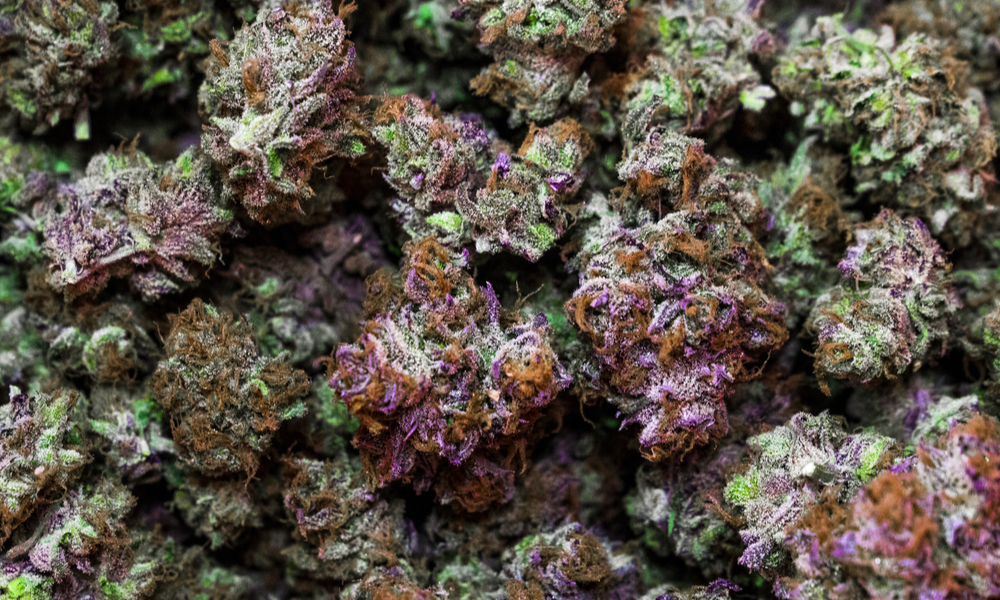Tetrahydrocannabivarin (THCV) is a cannabinoid compound found in marijuana and hemp plants. It's chemically similar to tetrahydrocannabinol (THC) but with some key differences. Here's everything you require to know about THCV consisting of the risks, benefits, differences, Visit website and similarities with other kinds of THC and more. What Is THCV? THCV is a less typical cannabinoid found in some stress of marijuana, especially African sativa.
 What is THCv Cannabinoid Explained - leafipedia.net
What is THCv Cannabinoid Explained - leafipedia.net
![]() THCV Strains: 11 Interesting Health Benefits You Should Know
THCV Strains: 11 Interesting Health Benefits You Should Know
 Tetrahydrocannabivarin - Wikipedia
Tetrahydrocannabivarin - Wikipedia
THCV has a 3-carbon side chain rather than THC's 5-carbon side chain. This difference is subtle, but it has a noticeable effect on the impact profile. what marijuana strands have thcv THCV is rather psychedelic but only about and about. What Does THCV Feel Like? THCV has a strong energy-boosting element to it, which makes it specifically popular among trainees and athletes.
In the United States, THCV guideline is nuanced. THCV is not an Arrange I Drug, but marijuana extracts are making it somewhat ambiguous what the federal position is on THCV. The 2018 Farm Expense states that hemp plants and all derivatives of the plants are legal on a federal level, a lot of companies follow this law and still supply THCV to consumers by just drawing out the compound from hemp plants.
If THCV is thought about a THC analog, it could be managed in the future by the exact same guidelines as THC under the Federal Analog Act. This act states that any compound that shares a comparable molecular profile as a recognized restricted substance it's included in the exact same drug Schedule classification.
What Are the Impacts of THCV? Proponents of THCV report that it produces an intense burst of energy and makes them feel euphoric without the mental cloudiness brought on by THC. The results are extremely moderate compared to THC. The impacts are almost solely cognitive yet in some way have very little effect on headspace.
2. THCV & Cravings Some THCV users declare that it curbs their cravings. This is a common impact of other focus-enhancing compounds. It's as though THCV gets rid of the interruption of other physical processes (like hunger) in order to preserve resources and attention to cognitive tasks instead. How Does THCV Work? Cannabinoids produce biological impacts in the body by engaging with endocannabinoid receptors.
CB1 receptors are situated in the nerve system and engage with neurotransmitters in the brain to produce mind-altering effects. Interaction with CB1 click here sites is what gives some cannabinoids like THC their psychoactivity. THCV is a bit challenging to understand because it's mainly a CB1 villain, meaning it has the opposite effect as THC.
While scientists are still seeking to comprehend this process, it appears THCV has the ability to obstruct the effects of CB1 in low dosages and promote them in high doses. CB2 receptors are found mostly in the body immune system. THCV is a partial agonist of CB2, but the results of this partial activity aren't popular, and it relatively has no noticeable influence on THCV users' experience.
As mentioned in the previous section, THCV is a CB1 villain in low doses which is the exact opposite effect of delta 8 and delta 9 THC. This might indicate that THCV neutralizes some of the psychoactive effects of THC. This result might describe why people who utilize THCV feel so clear-headed especially compared to the well-known "fogginess" induced by delta 9 THC.